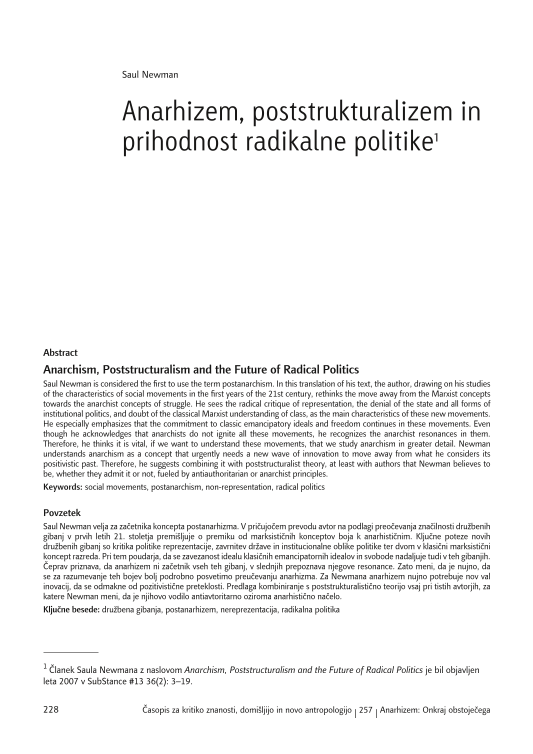Saul Newman is considered the first to use the term postanarchism. In this translation of his text, the author, drawing on his studies of the characteristics of social movements in the first years of the 21st century, rethinks the move away from the Marxist concepts towards the anarchist concepts of struggle. He sees the radical critique of representation, the denial of the state and all forms of institutional politics, and doubt of the classical Marxist understanding of class, as the main characteristics of these new movements. He especially emphasizes that the commitment to classic emancipatory ideals and freedom continues in these movements. Even though he acknowledges that anarchists do not ignite all these movements, he recognizes the anarchist resonances in them. Therefore, he thinks it is vital, if we want to understand these movements, that we study anarchism in greater detail. Newman understands anarchism as a concept that urgently needs a new wave of innovation to move away from what he considers its positivistic past. Therefore, he suggests combining it with poststructuralist theory, at least with authors that Newman believes to be, whether they admit it or not, fueled by antiauthoritarian or anarchist principles.




